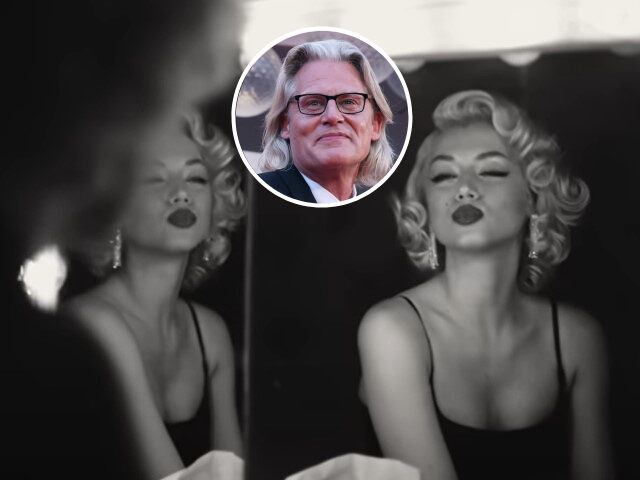Blonde director Andrew Dominik didn’t hold back on those critics who grasped their pearls in offense over his fictitious Netflix Marilyn Monroe biography. During an appearance at Saudi Arabia’s Red Sea International Film Festival, Dominik laughed at crybaby critics who were offended by the movie:
“I’m Australian, from Melbourne – I came of age in the 80s when to offend your audience was a solemn duty,” Dominik explained. “The movie business has become less and less like that; the movie business and society in general has become very concerned with not offending people.”
He adds, “There’s a good motive behind it, which is they want to be sensitive; but I don’t think that rewriting the truth about things is the right way.”
“What they want is a hagiography, they want a celebration of that person according to the mores of the time,” said Dominik. “Now we’re living in a time where it’s very important to present women as empowered, and they want to reinvent [Monroe] as an empowered woman.”
He continues:
I think her actual life was way worse than the film. If you spent 70 years enjoying a fantasy of a person; then a movie comes along that says she was not complicit in your enjoyment, it puts you in an uncomfortable position for having enjoyed it. People don’t want to be put in that position; they want her to be the one that created their enjoyment, and was along for the ride, then had a bad year and killed herself. That’s not the way it works. There’s no redemption in suicide.
…
What they said was that the movie exploited her – which was kind of strange, because she’s dead. What they really mean is the film exploited their memory or image of her – which is fair enough, it does. It’s trying to take things that you’re familiar with and turn the meaning of them inside out – that’s what they don’t like.
He then compared modern audiences to children who “know every word of the story, and it brings them comfort; but I don’t want to make bedtime stories.”
My criticism of Blonde had nothing to do with being offended. My issues were pacing and performance, especially in the final half-hour. On the specific issue of the victim portrayal, my complaints only involved accuracy. The movie got a lot wrong and in doing so smeared innocent people.
According to my reading, Monroe was not as Dominik portrayed her: a sexy pinball helplessly bounced around and exploited in the Hollywood machine. Sure, plenty of men took advantage of her, but it was mostly transactional. Monroe wanted to become a star and then a legend and then a respected and serious actress, and then first lady in JFK’s White House. To accomplish this, she was utterly mercenary and frequently offered herself up sexually.
Nevertheless, Dominik’s point is a valid one. Any traditional, right-leaning, conservative, Christian American is used to feeling under attack by Hollywood. One benefit of this is that we grow a thicker skin. Leftists, however, are used to being coddled by an entertainment industry that portrays them and their causes as righteous. If anything, in the age of the Woke Gestapo, this has gotten worse, and the result is a generation of spoiled babies who have a Twitter Tantrum the moment they do not get what they want. These are shallow, neurotic, and insecure people who’ve accomplished so little, they’ve had to base their self-esteem on their identity, as though being a woman or gay or a racial minority is some sort of accomplishment. This means they want to see themselves portrayed on screen in the same way they see themselves in life: as perfect, heroic, strong, and moral.
Well, that doesn’t work. Perfect is boring. It’s also dishonest. You can’t lie about human nature and tell a good story. The two are incompatible.
In his own way, that’s what Dominik did. It’s just that he did a 180 and portrayed Monroe as a perfect victim, which also wasn’t true.
Seeking to offend or coddle the audience adds up to two sides of the same coin. The result is dishonest, and no story can survive that. Blonde sure didn’t.

COMMENTS
Please let us know if you're having issues with commenting.